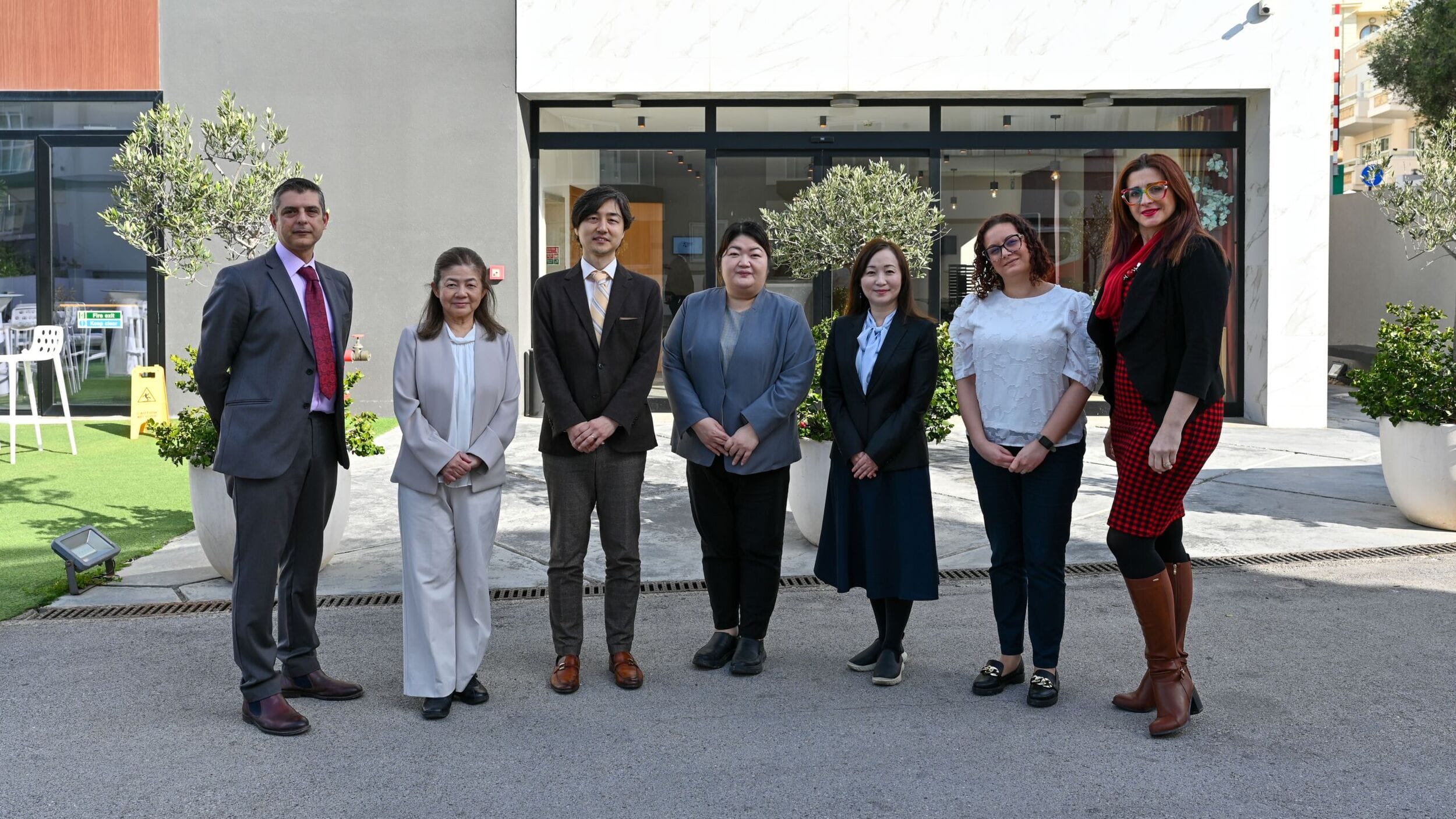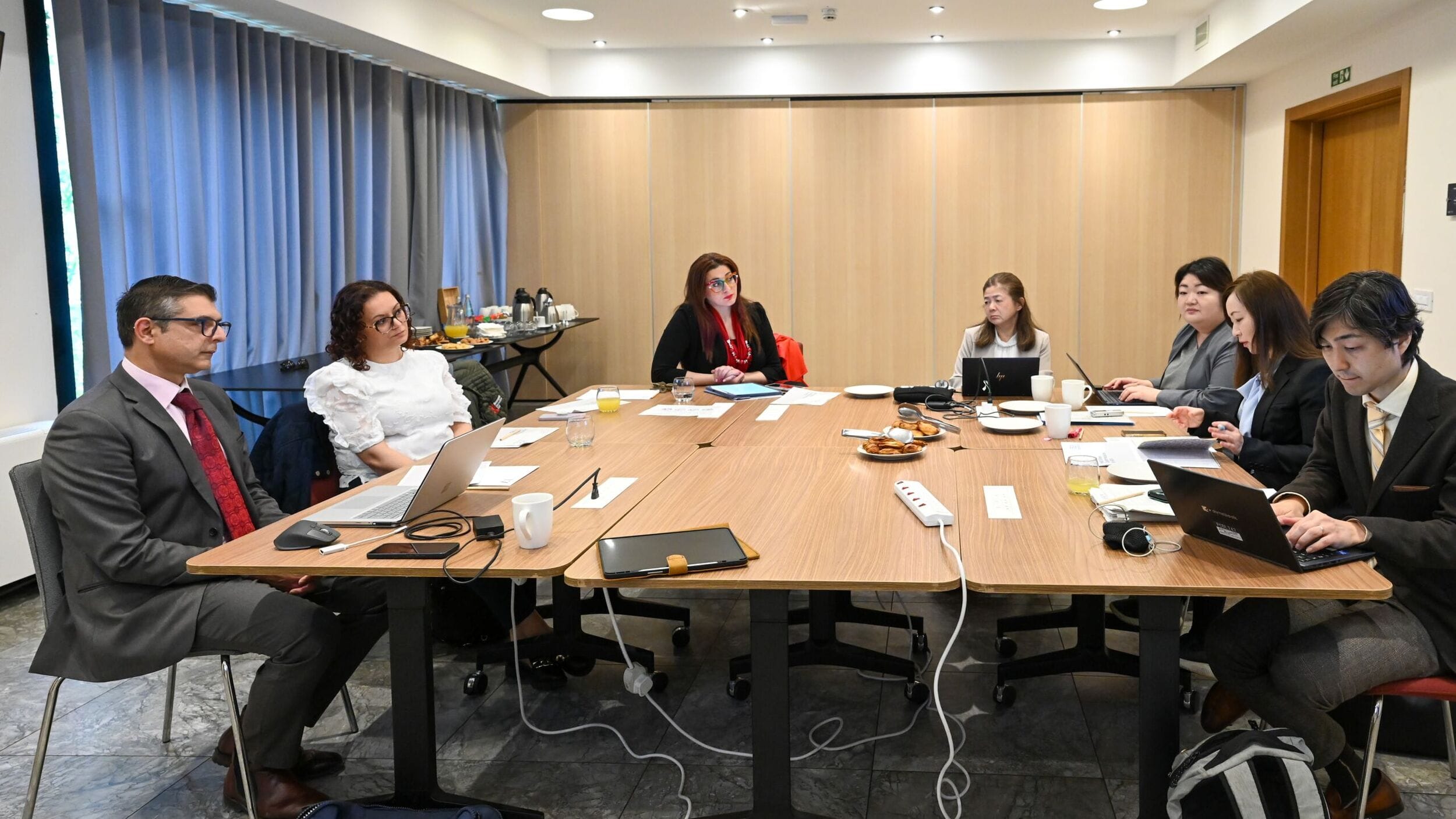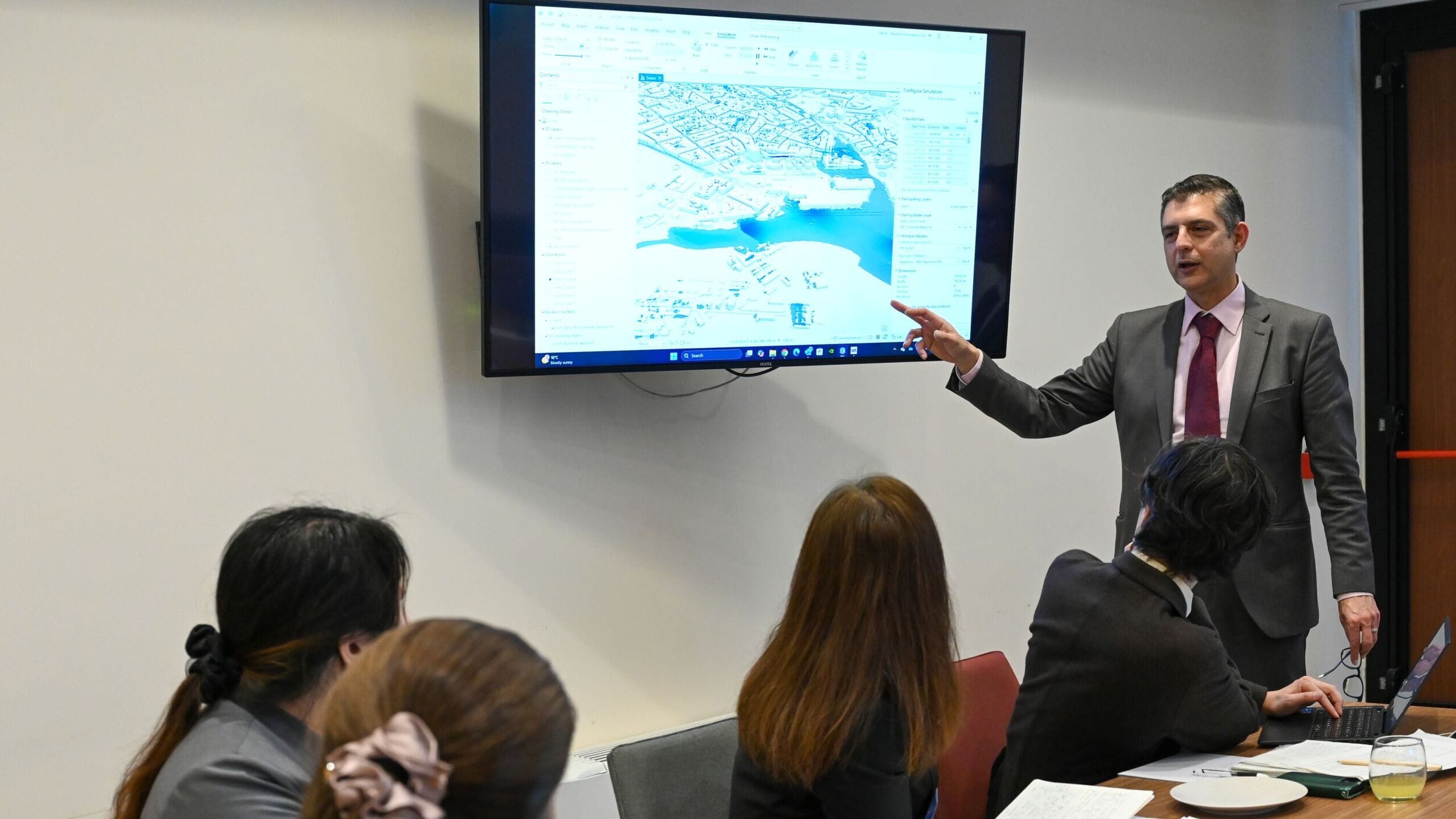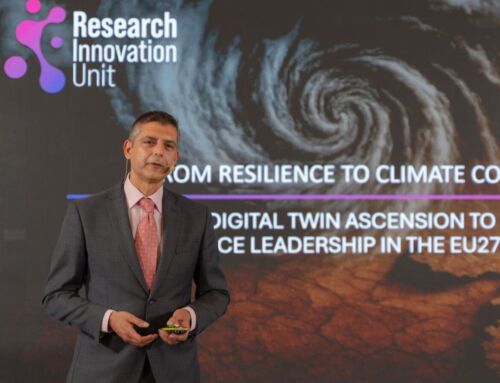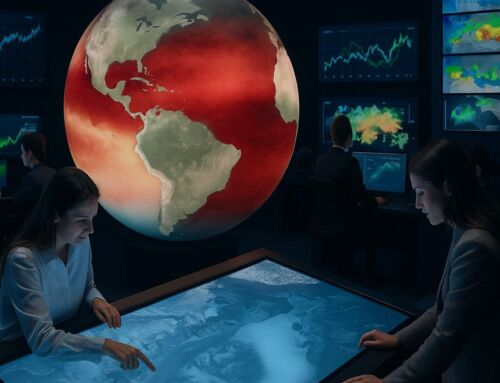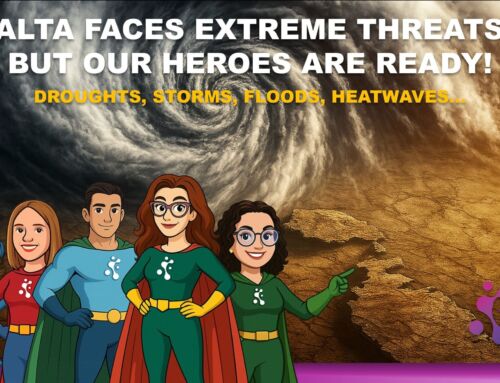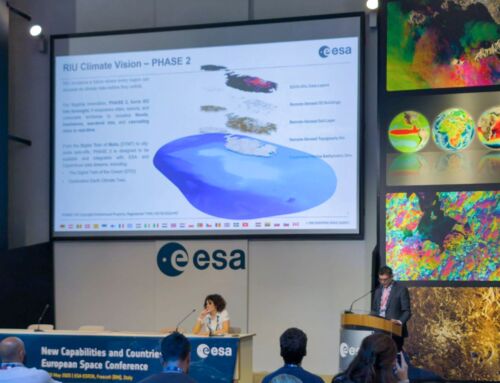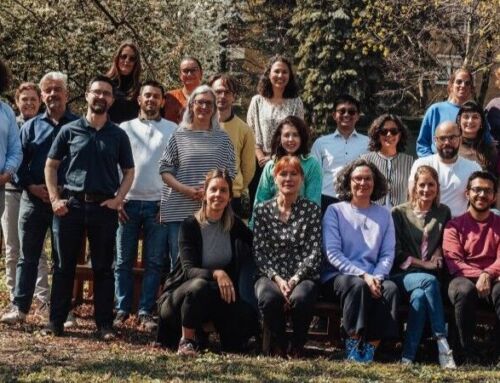On 5 March 2025, the Research Innovation Unit (RIU) hosted a high-level delegation from Japan, comprising senior representatives from JANUS (Japan Adaptation Nexus for Urban Sustainability) and ERCA (Environmental Restoration and Conservation Agency of Japan). The meeting, held at the Notch, underscored Malta’s growing international relevance as a microstate innovator in climate adaptation.
Led by Fabian Borg, the discussion focused on knowledge exchange, digital twin technologies, and scalable adaptation models, with special emphasis on cross-regional applications for island and coastal nations facing accelerating climate threats.
Showcasing Malta’s Digital Resilience Framework
The RIU team presented Malta’s evolving climate intelligence infrastructure, featuring:
- The Digital Twin of Malta (DTMT-01) — launched December 2024
- The PHASE 2 engine — a proprietary simulation system designed to model multi-hazard climate risks including urban flooding, sea-level rise, and heat extremes
- Operational tools such as the Malta Heat Severity App, the Actual Population Density Visualiser, and the Gżira Digital Twin Pilot
Japan’s delegation expressed keen interest in Malta’s ability to deploy high-precision digital models on a national scale with limited resources — a challenge shared by island nations globally.
Shared Climate Challenges, Shared Innovation
Dialogue centred on the converging vulnerabilities of Malta and Japan: rapid urbanisation, ageing infrastructure, dense coastlines, and exposure to intense climate events such as typhoons (Japan) and medicanes (Malta). Both parties acknowledged the value of adaptive modelling platforms that can operate at high resolution while remaining agile and citizen-focused.
Topics explored included:
- Interoperability between European and Asian digital twin frameworks
- Use of satellite data (Sentinel, Himawari) for urban and coastal monitoring
- Integrating AI and climate prediction to enable early warning systems
- Alignment with UN Sendai Framework and Global Adaptation Goal targets
Toward Transcontinental Collaboration
JANUS and ERCA officials expressed formal interest in:
- Technical collaboration on the PHASE 2 simulation engine
- Replicating parts of the Digital Twin of Malta methodology within Japanese municipalities
- Joint case studies on urban heat island mitigation and stormwater management
The meeting also explored potential for future engagement under Horizon Europe-associated cooperation frameworks and international research platforms supported by the European Commission and the Japanese Ministry of the Environment.
Reflections
This meeting represents more than diplomatic courtesy — it affirms Malta’s emergence as a knowledge-sharing hub in climate adaptation and digital governance. The RIU’s approach to low-cost, high-impact simulation models is now being recognised beyond Europe as a template for other small states and regional ecosystems.

